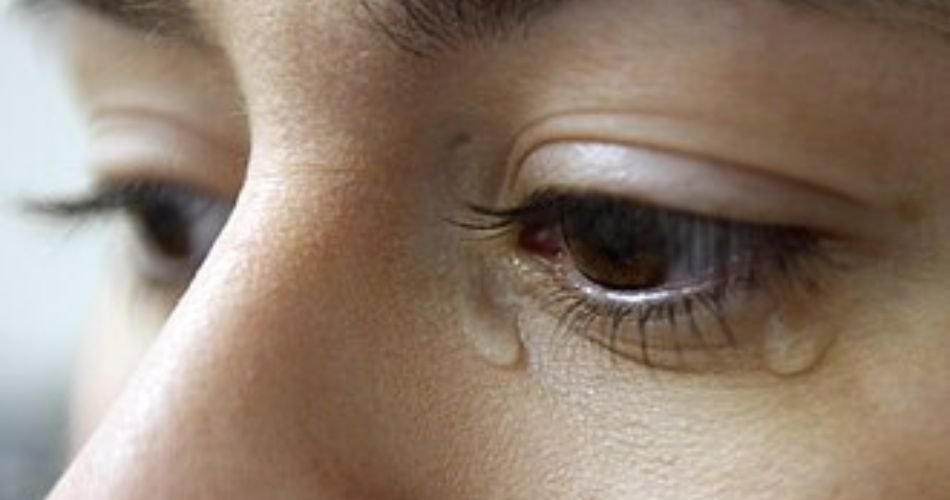The appearance of eyes after crying can feel just as overwhelming as the emotions that triggered the tears. Puffy lids, redness, and a tender feeling often linger long after the sobs have stopped. While crying is a natural and healthy emotional release, it can leave behind some unwanted physical effects. Understanding what happens to your eyes after crying can help you care for them properly and speed up the recovery process. With a few simple tips, you can soothe your eyes, restore your fresh look, and feel more like yourself again. Let’s dive into everything you need to know about managing your eyes after crying.
Understanding What Happens to Eyes After Crying
When discussing the effects on the eyes after crying, it’s essential to realize that crying triggers a complex biological process. As tears flow, blood vessels around the eyes expand, creating noticeable swelling and redness. This reaction happens because emotional tears contain more hormones and proteins than regular tears, which can irritate the surrounding tissues. The eyes after crying often look puffy, feel tender, and can sometimes even appear bruised, depending on how much pressure you exert while wiping your tears away. Recognizing these changes helps you understand your body’s natural healing response.
Why Do Eyes Swell After Crying?
The phenomenon of swelling in the eyes after crying is primarily due to the osmotic effects of tears. Emotional tears have a high salt concentration, which draws water into the surrounding skin tissues. This extra fluid causes the eyes after crying to look swollen and sometimes unevenly puffed. Additionally, the physical act of sobbing increases blood flow to the face and eyes, intensifying the appearance of puffiness. Knowing why this happens can help you respond with better care and minimize the visual impact when you need to return to daily life.
The Science Behind Red Eyes After Crying
One unmistakable hallmark of eyes after crying is their redness. This redness happens because tiny blood vessels on the surface of the eye, called capillaries, expand under emotional stress. The flood of tears and increased blood circulation cause the eyes after crying to appear bloodshot and irritated. It’s a normal biological reaction and, thankfully, one that usually subsides with time and a little TLC. Understanding the underlying science helps you choose the right methods to soothe your eyes effectively after a tearful event.
Temporary Vision Changes and Eyes After Crying
Blurred vision is another odd sensation you might notice in your eyes after crying. As tears overflow, they disrupt the normal tear film that covers the eyes, temporarily affecting clarity. The salt and proteins in emotional tears can also create a filmy layer over the cornea, which explains why your eyes after crying might feel heavy and your vision slightly distorted. Fortunately, these effects are temporary, but staying aware can prevent unnecessary panic when your sight isn’t immediately crystal clear post-cry.
Why Some People Experience Burning Sensations
It’s not unusual to experience a mild burning sensation in the eyes after crying. Tears mixed with environmental irritants, like dust or makeup residue, can lead to a stinging feeling. Additionally, the friction of wiping your eyes repeatedly can strip away natural oils, leaving your eyes after crying more exposed and sensitive. If burning persists beyond a few hours, it may signal an underlying irritation that needs more attentive treatment, like lubricating eye drops or even a short visit to an eye care professional.
Immediate Remedies for Puffy Eyes After Crying
When trying to fix the look of eyes after crying quickly, cold therapy remains one of the best solutions. A cold compress helps constrict dilated blood vessels, reduces fluid buildup, and calms redness. Simply applying a clean, chilled cloth over your eyes for about 10 minutes can drastically improve the appearance of your eyes after crying. Hydration plays a vital role, too—drinking plenty of water helps flush out excess salt that could worsen swelling. Quick remedies like these can help you recover faster and face the world again with confidence.
Long-Term Skin Care for Sensitive Eyes After Crying
Taking care of your skin around the eyes after crying can make a big difference over time. The area around the eyes is exceptionally thin and vulnerable to damage from frequent wiping and emotional outbursts. Incorporating a gentle, hydrating eye cream into your nightly skincare routine can strengthen this delicate skin. Ingredients like hyaluronic acid and aloe vera can soothe and protect the eyes after crying, reducing the risk of long-term puffiness, fine lines, or dark circles resulting from chronic swelling and irritation.
Best Natural Remedies for Soothing Eyes After Crying
Nature offers wonderful options for treating your eyes after crying without harsh chemicals. Cold cucumber slices placed gently over the eyes are a classic remedy for reducing swelling. Their high water content and natural antioxidants help calm the skin and refresh the eyes after crying. Chilled green tea bags are another fantastic option because they contain caffeine and tannins that tighten blood vessels and diminish puffiness. These natural remedies not only soothe discomfort but also make you feel pampered after an emotional release.
Makeup Hacks to Hide Eyes After Crying
When you have to face the public shortly after an emotional moment, there are ways to camouflage the telltale signs of eyes after crying. Start by applying a lightweight, hydrating primer that smooths out any puffiness. Follow with a yellow or peach-toned concealer to neutralize redness under and around your eyes. Mascara can work wonders, but use a waterproof formula to avoid further smudging. Lastly, a nude eyeliner on the lower waterline helps brighten the look of your eyes after crying, giving you a fresher, more awake appearance.
How to Prevent Puffiness in Eyes After Crying
If you know you’re about to cry—whether from joy, sadness, or pure frustration—there are preventive measures you can take to minimize the aftermath. Keeping your head elevated while crying helps prevent fluid from pooling around the eyes after crying. Blot your tears gently with soft, lint-free tissues instead of rubbing vigorously. You can also prep the delicate under-eye area with a soothing, cooling eye gel to provide a protective barrier that minimizes swelling and redness even before tears begin to fall.
Importance of Hydration for Eyes After Crying
It might sound counterintuitive, but staying hydrated is crucial for minimizing puffiness and irritation in your eyes after crying. When your body lacks sufficient water, it retains more fluid, which exacerbates swelling around the eyes. Drinking water before and after crying helps maintain the right balance, allowing your body to flush out excess salt and toxins faster. Proper hydration not only speeds up the recovery of your eyes after crying but also supports healthier skin and eye function overall.
Best Foods to Help Recover Eyes After Crying
Did you know that your diet can influence how quickly your eyes after crying recover? Anti-inflammatory foods like blueberries, cucumbers, and leafy greens are packed with antioxidants that help reduce swelling and repair tissue damage. Foods rich in vitamin C, such as oranges and bell peppers, strengthen blood vessels and improve skin elasticity, which is especially beneficial for the sensitive area around the eyes after crying. Including these foods in your diet can provide long-term benefits and quicker recovery after emotional episodes.
Emotional Healing Beyond Eyes After Crying
Taking care of the physical effects on your eyes after crying is important, but so is addressing the emotional aftermath. Emotional crying is a natural stress reliever, and acknowledging your feelings instead of suppressing them is key to healing. After an intense cry, give yourself permission to rest, reflect, and recharge. Journaling, meditating, or simply having a heartfelt conversation with a trusted friend can ease emotional burdens and promote holistic recovery, helping you feel better inside and out, not just in your eyes after crying.
When to Consult a Doctor About Persistent Puffy Eyes
While most symptoms affecting the eyes after crying are harmless, there are situations where medical attention becomes necessary. If swelling, redness, or discomfort persists beyond 48 hours, or if you experience unusual pain or vision changes, it’s time to see a healthcare professional. Persistent issues with the eyes after crying could hint at more serious problems like an eye infection, allergic reaction, or tear duct blockage that require targeted treatment. Listening to your body’s warning signs ensures you address any problems early and maintain good eye health.
Conclusion
At the end of the day, the effects on the eyes after crying serve as a reminder that we are deeply emotional, complex beings. While the physical signs like puffiness and redness may feel inconvenient, they are small prices to pay for the immense emotional release and healing that crying provides. Knowing how to care for your eyes after crying allows you to honor your emotions without suffering lingering side effects. So next time you find yourself wiping away tears, remember: your body—and your soul—are simply working through the beautiful process of healing.




